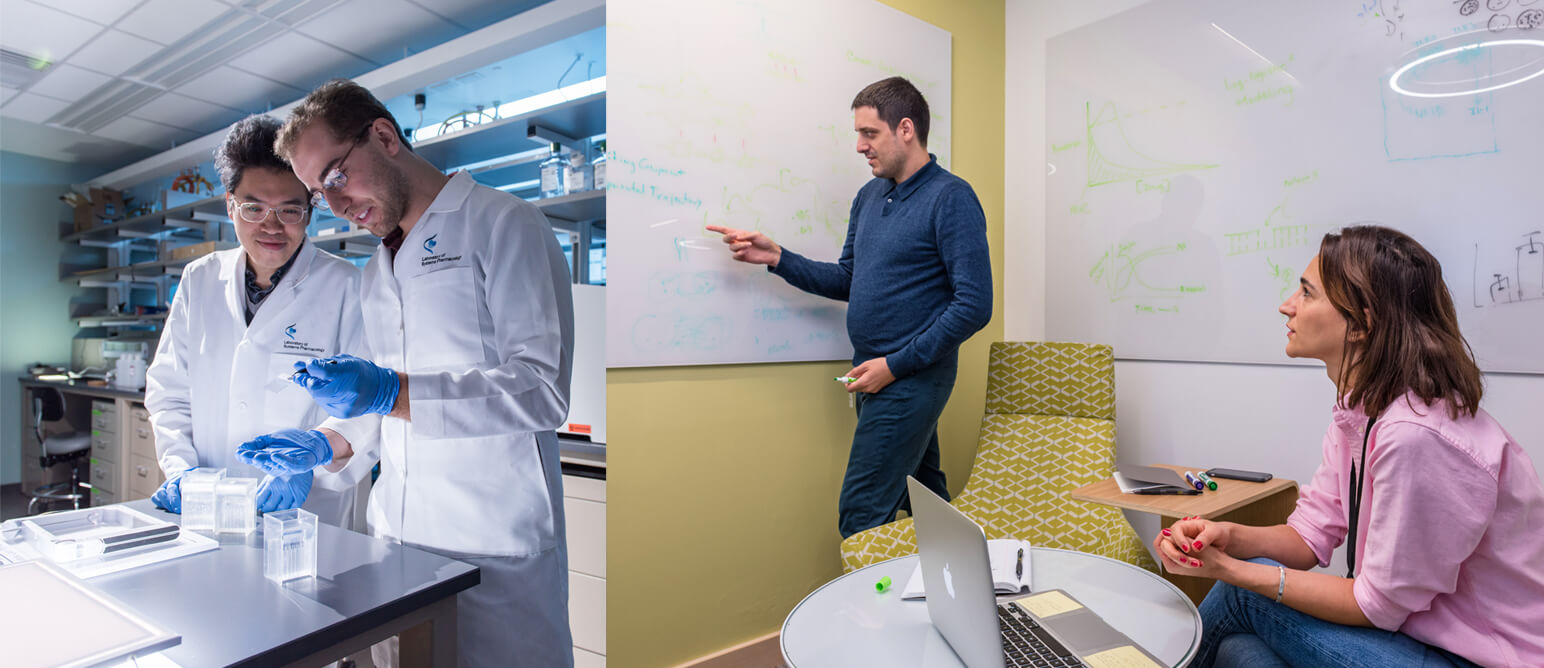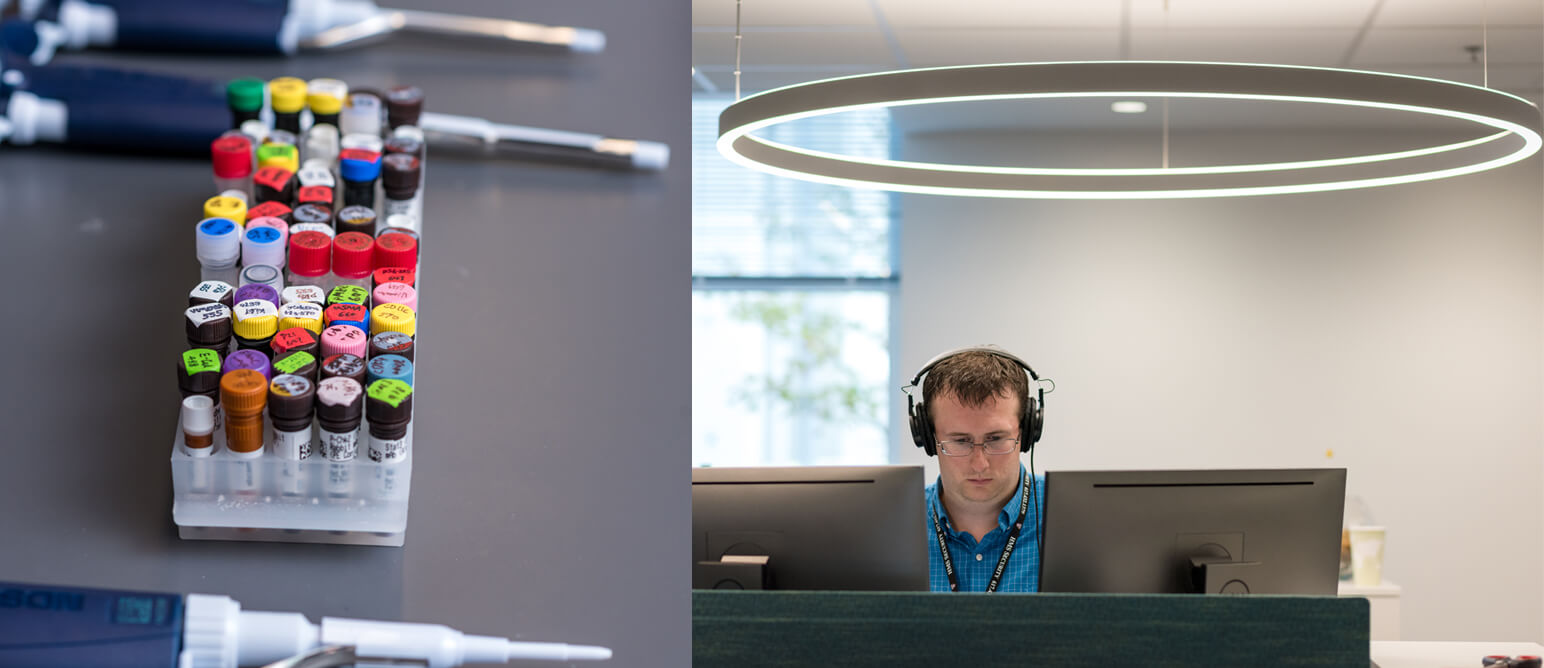About the Program
The Harvard Program in Therapeutic Science (HiTS) unites physicians and scientists under one roof so they can use collaborative team science approaches to solve the toughest interdisciplinary challenges in medicine. Our work aims to improve patient care by enabling precision medicine approaches for disease diagnosis and treatment, and the rational improvement of the regulatory process.
HiTS has two primary components:
Laboratory of Systems Pharmacology (LSP)
The Laboratory of Systems Pharmacology is a highly interactive community of 150 scientists, engineers, and physicians that studies early and late-stage drug discovery using diverse highly-multiplexed measurement (omics) methods and mathematical modeling. Our approach draws on engineering and computer science to develop a more quantitative approach to drug invention, testing, and use in patients.
The LSP focuses on serious diseases with unmet medical needs, such as drug-resistant cancers, chronic infections, neurodegenerative diseases, and chronic pain. LSP faculty have their primary appointments in hospitals and academic institutions in the Boston area but work side-by-side in a collaborative laboratory within the Harvard Medical School quadrangle.
Harvard-MIT Center for Regulatory Science (HMCRS)
The Harvard-MIT Center for Regulatory Science advances research and education in regulatory science. The Center serves the broad community of biomedical research scientists and physicians in academia, industry, and regulatory agencies who seek to improve the development and evaluation of medical products.
HMCRS members study the medical and economic impact of industry activities and regulatory policies, seeking more effective ways to develop and use innovative medical products. The Center collaborates with the US Food and Drug Administration on a fellowship program designed to prepare PhD and MD PhD trainees for academic, industry, and government positions at the intersection between science and regulatory policy. HMCRS hosts regular events that convene diverse stakeholders in regulatory science through annual symposia, topic-focused workshops, and working groups

LSP Facts & Figures:
Participating Academic Institutions: 10
Faculty: 24
Trainees and Staff: 100
Research Budget: $15M USD
Research footprint: 15,000 ft2

HMCRS Facts & Figures:
Participating Academic Institutions: 10
Faculty: 14
Fellows: 6
Research Budget: $1.5M USD
Harvard Therapeutics Initiative
The LSP and HMCRS work closely with the leaders of the Harvard Therapeutics Initiative to accelerate the rate at which individual drug discovery projects transition from a discovery phase to a stage ready for the first steps of regulatory review (the investigative new drug phase). Ultimately, we expect methods developed in HiTS to accelerate these projects and provide more efficient means of conducting clinical trials.
HiTS Community
The HiTS community is committed to fair and equitable treatment, access, opportunity, and engagement for all. We strive for an inclusive research environment that is non-hierarchical, encourages innovation, and respects and values all perspectives, especially those of individuals from historically disadvantaged communities.
Alumni of HiTS are professors or group leaders at leading institutions across the globe, and many have gone on to start new companies or join the many dynamic pharmaceutical and biotech companies in the Boston area.
All HiTS members engage in career development and training, and we provide multiple coaching and training opportunities in these areas. Many of our technical staff are also pursuing advanced degrees, such as MSc degrees through the Harvard Extension School.
Visit the Opportunities page to learn about open positions.
